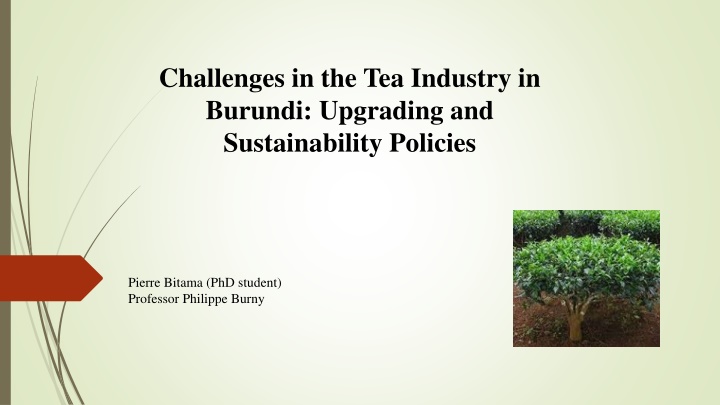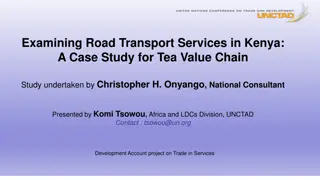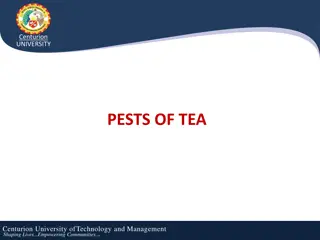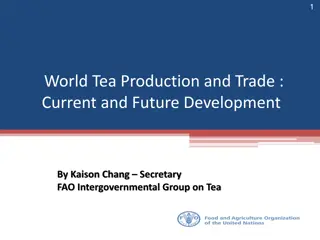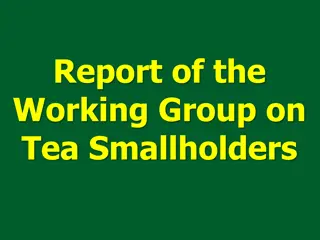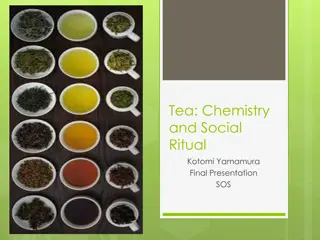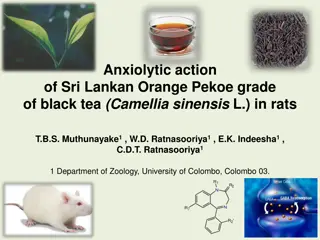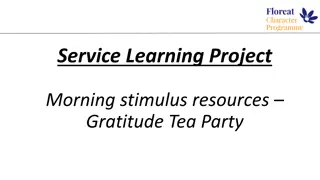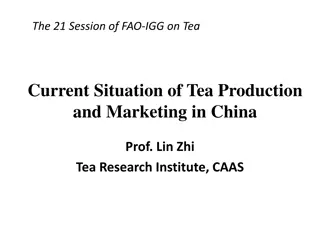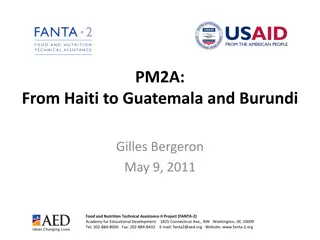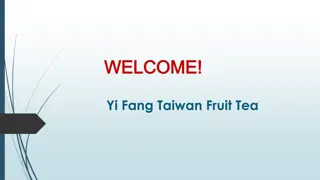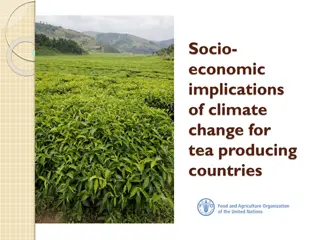Challenges and Sustainability in Burundi's Tea Industry
In a study focusing on the tea industry in Burundi, challenges such as price volatility, oversupply, and labor costs were highlighted. The research emphasized the need for upgrading and sustainability policies to address issues like diversification, international certifications, investments in equipment, and better management practices. Collaboration with developed countries and support for small tea farmers were suggested as key strategies for improving the industry's competitiveness.
Download Presentation

Please find below an Image/Link to download the presentation.
The content on the website is provided AS IS for your information and personal use only. It may not be sold, licensed, or shared on other websites without obtaining consent from the author.If you encounter any issues during the download, it is possible that the publisher has removed the file from their server.
You are allowed to download the files provided on this website for personal or commercial use, subject to the condition that they are used lawfully. All files are the property of their respective owners.
The content on the website is provided AS IS for your information and personal use only. It may not be sold, licensed, or shared on other websites without obtaining consent from the author.
E N D
Presentation Transcript
Challenges in the Tea Industry in Burundi: Upgrading and Sustainability Policies Pierre Bitama (PhD student) Professor Philippe Burny
CONTENTS Context Materials and Methods Results & discussion
CONTEXT Tea plant : A strategic cash crop Black tea s best quality Small plots, low production (0.2% in the world) Top ten ranked leading countries in tea production, exportation and consumption (by thousand tonnes) Over supply on international market Source: Chang, 2015; FAOSTAT, 2019
MATERIALS & METHODS Qualitative research Primary data Upstream and downstream actors randomly selected Semi-structured interviews Focus group, observation Secondary data: articles, books, reports, etc. Qualitative analysis & content analysis
Results and discussion Black Tea s Price Volatility oversupply on the market Diversification Inelastic price (BT: -0.32 to -0.80) Value-added & high-quality High quality & certification standards
Results and discussion International certification Fairtrade Rainforest Alliance Organic UTZ Rainforest alliance
Results and discussion Investment in equipment Processing Equipment Energy Hydroelectric power + Firewood Reforestation Solar & wind power energy Deforestation Tea variety Productive varieties/ hybrids Appropriate fertilizers + Organic manure & mulch Subsidize small tea farmers Intercroping ( ex. Grevillea) Old tree tea
Results and discussion Costs labour Leaves price rigidity Associations/cooperatives Equipment (clothes, shoes, gloves, etc.) Labor less profitable Plucking machines prohibition Training Misapplication of fertilizers No care of the tea bush in real time Seminars & training seamless collaboration Infrastructures Slippery roads Landlocked country Cooperation with developed countries
